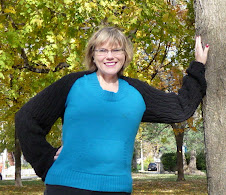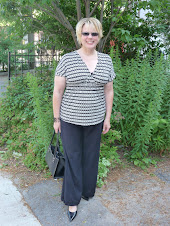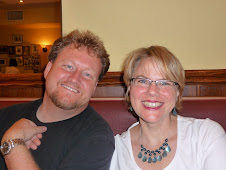So what exactly did I have done? Specifically, I had what is called a Roux-en-Y Gastric Bypass Surgery (RYBG). The RYGB procedure reduces caloric intake by altering the gastrointestinal tract two ways: through a restrictive and malabsorptive procedure. The Restrictive part of the procedure cuts down on the amount of food you can take in by tying or stapling off a little portion of the stomach, thus creating a miniature stomach, and leaving only a narrow outlet from which the food travels into the rest of the digestive tract and out in the normal manner. The stomach is reduced from a four-pint capacity to about a half-cup, and the lower outlet of the pouch is only about ½ inch in diameter.
The malabsorptive part of the procedure, also called gastric bypass, bypasses about two feet of the small intestine, the originally twenty-foot long tube where nutrient absorption occurs. Consequently, the food travels a shorter route, and fewer calories are absorbed. The lower end of the intestine, called the Roux limb, is brought up to the little stomach or “pouch” and attached to provide material with an exit. The other cut end is sewn back onto the intestine further down, to allow bile and pancreatic secretions into the small intestine so that digestion can proceed and nutrients can be absorbed. In essence most of the stomach if bypassed, all of the duodenum is bypassed, and the pyloric sphincter (the mechanism that controls the rate of entry of food into the small intestine) is bypassed.

What are the Gastric Bypass Surgery risks?
In general, the more extensive the operation, the greater the risk of complications and nutritional deficiencies. My procedure was done laparoscopically, thus reducing my risk, though the procedure is still considered Major Surgery.
Although RYGB is currently the most popular form of gastric bypass surgery, it does carry other risks. The risk of actually dying can be up to one percent, and the risk of serious complications is as high as ten percent. The leading cause of death is pulmonary embolism caused by deep vein thrombosis (a blood clot deep in a leg vein that breaks loose and travels to the lungs where it blocks a lung artery). This is something that I was worried about. To prevent this from happening I was initially required to move my feet and legs for a minimum of 10 -15 minutes every hour. On the day after surgery I was required to actually get up and take numerous short walks. As I have stated before, walking also helps move and dissipate the gas that is used to inflate the abdominal area during the surgery, but more importantly, it helps prevent blood clots. Finally, I was given Heprian, an anti-coagulant drug that is used chiefly in the treatment of thrombosis.
Gastric Bypass post surgery risks include abdominal hernias, which are the most common complication requiring surgery, but are much more common with "open" surgery where the procedure is done manually through a large incision.
Uncommon gastric bypass surgery risks can include the rare complications of: leakage from around staples or sutures, ulcers in the stomach or small intestine, blood clots in the lungs or legs, stretching of the pouch or esophagus, persistent vomiting and abdominal pain, inflammation of the gallbladder, and failure to lose weight (very rare).
More than one-third of obese patients who have weight-loss surgery develop gallstones. Gallstones are clumps of cholesterol and other matter that form in the gallbladder. During rapid or substantial weight loss, a person’s risk of developing gallstones increases. Gallstone formation can be lessened with medication taken for the first six months after surgery.
Since the connection between the stomach and intestines has narrowed, patients can experience vomiting and nausea after eating, though these are not universal side effects and normally only afflict a minority of patients, however vomiting and nausea are very likely to occur in patients who continue to eat highly refined, high-calorie foods, including sweets. Because many gastric bypass patients have poor dietary histories, this is considered a genuine risk.
Nearly 30 percent of patients who have weight loss surgery develop nutritional conditions such as anemia, osteoporosis, and metabolic bone disease. Because the small intestine is largely bypassed, minerals and vitamins can not be effectively absorbed from food. As a result deficiencies in iron, vitamin B12, calcium or magnesium can occur. These can be avoided if vitamin and mineral supplements are taken as recommended, on a continuing, life-long basis. Of those who do develop an iron deficiency, 50 percent develop anemia, a blood disease that can result in paleness and feelings of fatigue.
To avoid this and keep nutrition under control, doctors often recommend gastric bypass patients work with a dietitian to plan meals.
Another risk to consider involves what patients won't be able to have. A common procedure for early detection of gastric cancer is endoscopy, wherein a visual examination is conducted by passing an endoscope through a patient's mouth, down the esophagus and into the stomach and small intestines. The structure of the gastric bypass makes this procedure out of the question, thus adding another potential health risk for bypass patients.
Women of childbearing age should avoid pregnancy for 18 months to two years after surgery, until their weight becomes stable, because rapid weight loss and nutritional deficiencies can harm a developing fetus.
Non-steroidal anti-inflammatory drugs (NSAIDS) such as ibuprofen and many arthritis drugs that contain aspirin may not be taken after this surgery.
Smoking after weight-loss surgery may cause ulcers in addition to other known health risks.
Gastric bypass reversal is complex and is only performed if medically necessary.
Benefits of Gastric Bypass Surgery
Most weight-loss surgery patients will lose between 60 to 80 percent of their excess body weight with the gastric bypass procedure. Substantial weight loss occurs 18 to 24 months after surgery; some weight regain is normal and can be expected two to five years after surgery.
In addition to weight loss, surgery has been found to have a beneficial effect on many other medical conditions such as: diabetes, hypertension, acid reflux, sleep apnea, polycystic ovary syndrome (PCOS), urinary stress incontinence, low back pain and many others. Cleveland Clinic research has shown that 80 percent of their diabetic patients had remission from their diabetes (patients’ blood sugar levels were normal without medication). In addition, many patients report an improvement in mood and other aspects of psychosocial functioning after surgery.
After gastric bypass surgery, your overall quality of life is improved. Many weight-loss surgery patients express elation on being able to do things that may seem trivial to the non-obese person, such as going to the store, playing with their children, getting in and out of a car, riding a roller coaster, shopping for regular-sized clothes … the list is endless.
Typically, weight-loss surgery is performed laparoscopically (minimal invasive surgery). Patients will often experience shorter hospital stays, smaller incisions and quicker recovery periods.
Medical conditions that may be greatly improved after gastric bypass surgery include:
High blood pressure. At least 70 percent of patients who have high blood pressure, and who are taking medications to control it, are able to stop all medications and have a normal blood pressure typically two to three months after surgery. When medications are still required, their dosage can often be lowered, without reduction of medication side effects.
High cholesterol. More than 80 percent of patients will develop normal cholesterol levels two to three months after the operation.
Heart disease. Although it can't be said definitively that heart disease is reduced, the improvement in problems such as high blood pressure, high cholesterol and diabetes certainly suggests that risk reduction is very likely. In one recent study, the risk of death from cardiovascular disease was found to be profoundly reduced in diabetic patients who are particularly susceptible to this problem. It may be many years before further proof exists, since there is no easy and safe test for heart disease.
Diabetes. More than 90 percent of Type II diabetics experience, usually within a few weeks after surgery: normal blood sugar levels, normal Hemoglobin A1C values, and freedom from all their medications, including insulin injections. Based upon numerous studies of diabetes and the control of its complications, it is likely that the problems associated with diabetes will slow in their progression when blood sugar is maintained at normal values. There is no medical treatment for diabetes that can achieve as complete and profound an effect as gastric bypass surgery — which has led some physicians to suggest that gastric bypass surgery may be the best treatment for diabetes in the seriously obese patient. Abnormal glucose tolerance, or "borderline diabetes," is even more reliably reversed by gastric bypass. Since this condition becomes diabetes in many cases, the operation can frequently prevent diabetes as well. Another recent analysis showed that 84 percent of those who underwent Roux-en-Y gastric bypass experienced complete reversal of their type 2 diabetes. Most of them stopped their oral medications or insulin before they even left the hospital, so the remission was apparently not due to weight loss alone. As a result, gastric bypass surgery is being explored as a cure for type 2 diabetes in normal weight or moderately overweight people. Recently, the RYGB procedure was used on two mildly overweight patients. Within a month post-surgery, these patients had dramatically lower fasting glucose, fasting insulin, and A1c's.
Asthma. Most asthmatics find that they have fewer and less severe attacks, or sometimes none at all. When asthma is associated with gastro esophageal reflux disease, it is particularly benefited by gastric bypass.
Respiratory insufficiency. Improvement of exercise tolerance and breathing ability usually occur within the first few months after gastric bypass surgery. Often, patients who have barely been able to walk find that they are now able to participate in family activities — even sports.
Sleep apnea syndrome. Dramatic relief of sleep apnea occurs as patients lose weight. Many report that within a year of gastric bypass surgery, their symptoms were completely gone, and they had even stopped snoring completely — even their spouses agreed. Many patients who require an accessory breathing apparatus to treat sleep apnea no longer need it after a surgical weight-loss procedure.
Gastro esophageal reflux disease. Relief of all symptoms of reflux usually occurs within a few days of gastric bypass surgery for nearly all patients.
Gallbladder disease. When gallbladder disease is present at the time of the surgery, it is "cured" by removing the gallbladder during the surgical weight-loss procedure. If the gallbladder is not removed, there is some increase in risk of developing gallstones after the surgery, and occasionally, removal of the gallbladder may be necessary at a later time.
Stress urinary incontinence. This condition responds dramatically to surgical weight loss and usually becomes completely controlled. A person who is still troubled by incontinence can choose to have specific corrective surgery later, with much greater chance of a successful outcome with a reduced body weight.
Low back pain, degenerative disk disease and degenerative joint disease. Patients usually experience considerable relief of pain and disability from degenerative arthritis and disk disease and from pain in the weight-bearing joints. This tends to occur early, with the first 25 to 30 pounds lost, usually within a month after gastric bypass surgery. If there is nerve irritation or structural damage already present, it may not be reversed by weight loss, and some pain may persist.














